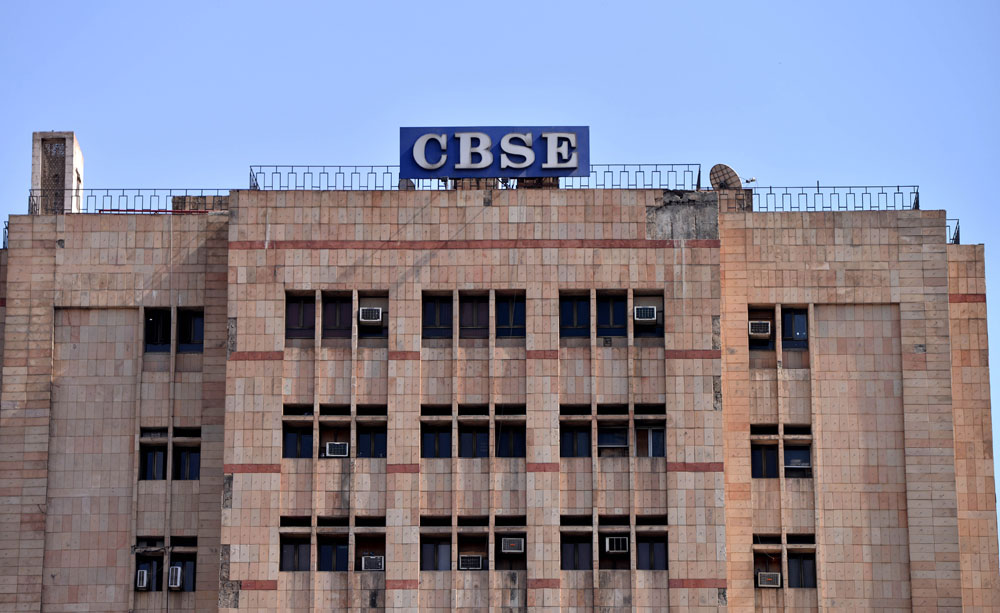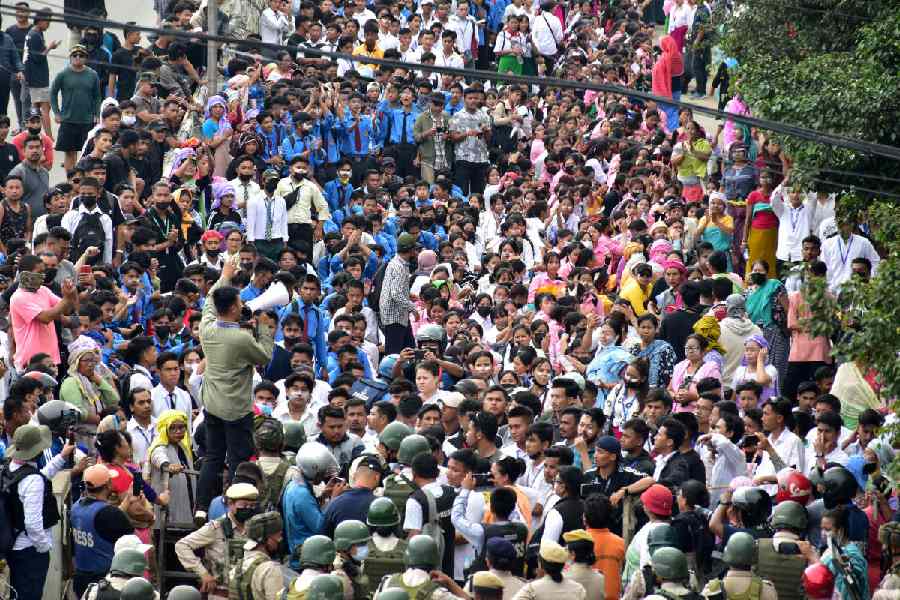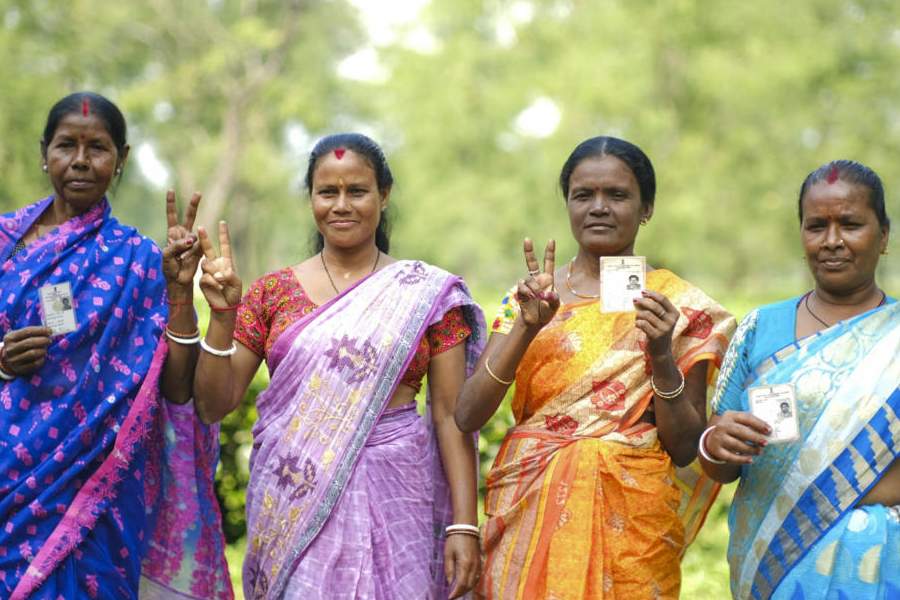The CBSE on Friday declared a four-point evaluation scheme for the Class X and XII papers in which exams will not be held, while saying it would offer the Class XII students optional written exams in the cancelled papers at a “conducive” date.
The CISCE — the board that conducts the ICSE and the ISC exams — said it would adopt the CBSE model with slight variations.
It said it too would offer optional exams to its Class XII students at a later date, and might also consider this option for Class X students.
The CBSE said that while the optional written exams would be an opportunity for its Class XII students to improve their scores, the marks gained in these tests would be final whether or not they represented an improvement.
During the day, the Supreme Court allowed the CBSE and the CISCE to scrap the remaining Class X and XII exams in the light of the Covid-19 outbreak, and asked them to declare the results by July 15. Both boards had rescheduled these papers in July.
While the court accepted the CBSE assessment formula, it allowed the CISCE to publish its assessment scheme on its website within a week.
Several academics were unhappy with the internal assessment component in one of the CBSE’s four formulas for evaluating the students, saying the schools tend to inflate these marks to give their students an advantage.
Internal assessment scores are based on students’ performances in areas such as class work, projects, quizzes and oral tests, and are awarded by the school itself.
“You can’t assess students’ scholastic ability based only on internal assessment. The schools invariably award high internal assessment marks to their own students,” Rajani Ranjan Singh, a professor at Dr Sakuntala Misra National Rehabilitation University in Lucknow, said.
Besides, Singh said, the schools tend to award high internal assessment scores to every student, which is “in a way, injustice to meritorious students”.
Ashok Pandey, director, Alchon Group of Schools, defended the internal assessment option as the “best possible solution”, stressing it would apply only to a few thousand students from northeast Delhi.

Besides, all the papers already have an internal assessment component of 20 to 30 per cent. However, an educationist said, the problem was with setting a precedent.
“If there’s a (natural) calamity in a particular state and exams cannot be held, and there’s a demand for (a wholesale) award of marks based on internal assessment, will the CBSE oblige?” asked C.B. Sharma, a professor at the School of Education at the Indira Gandhi National Open University and former chairperson of the National Institute of Open Schooling (NIOS).
He said the CBSE should first have analysed board exam scores to find out whether students’ internal assessment marks tend to correspond with the marks they earn in written tests.
Sharma said the remaining exams could easily have been held at designated centres over a window of a few weeks, maintaining social distancing, with the students choosing dates of their convenience.
He said the NIOS had a large enough data bank to generate thousands of sets of question papers with less than five per cent probability of repetition.
CBSE controller of examinations Sanyam Bhardwaj told this newspaper that the internal assessment option would apply to only 2,300 students.
He agreed about “perceptions that students are awarded marks liberally in internal assessment” and said the board would “work out a normalisation formula to address these concerns”.
Some parents and students are unhappy with the option of examinees being awarded, in the cancelled papers, average scores from the subjects they have appeared in.
Sanjeev Kumar Sinha said his daughter had the high-scoring computer science paper left.
“I don’t think the average of the best three remaining papers can match what she could have scored in computer science. She was expecting close to 100,” Sinha said. “The universities look at the best of four papers. Computer science scores can improve a candidate’s chances of selection.”
A student from east Delhi said she had only the business studies paper left, in which she was expecting 95. “I’m comfortable with this average-marks arrangement,” she said.
Kiran Mehta, director (academics and activities), Mother Mary’s School, Mayur Vihar, Delhi, said the offer of optional exams later to improve one’s scores was a good idea.
But the CBSE should have taken the decision much earlier, instead of rescheduling the remaining papers between July 1 and 15, she said.
“By keeping the hope of board exams alive, the CBSE prevented the students from focusing on the upcoming competitive entrance exams,” Mehta said.
The three-judge apex court bench, dealing with petitions from students seeking cancellation of the exams, had earlier in the day said: “With this order, all proceedings pertaining to the subject matter in this court or any high court stand disposed of.”
Advocate Rishi Malhotra, appearing for some of the students, had pleaded that the optional tests be held within two weeks of the declaration of results.
But solicitor-general Tushar Mehta, representing the Centre, said no such timetable could be given now.
“It’s also possible that the CBSE may decide the situation is not conducive to hold exams at all,” the bench remarked.
In Class XII, a CBSE student has to take exams in five compulsory subjects, with some of them opting for an additional elective paper.
Additional reporting by R. Balaji











